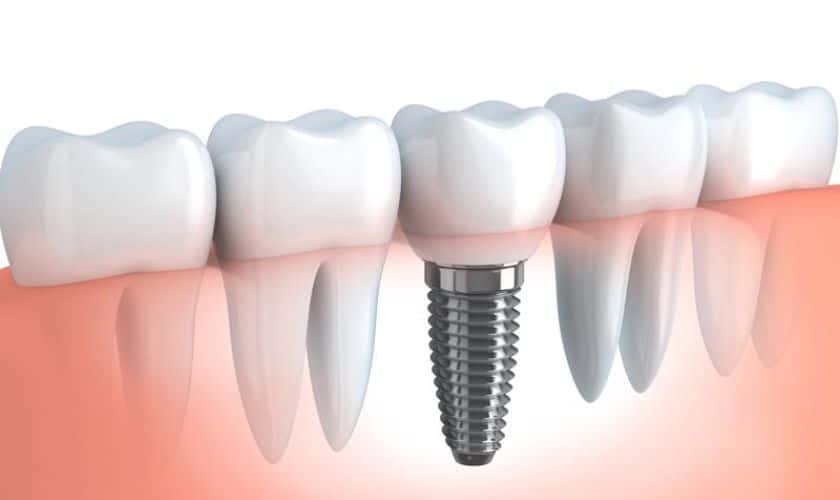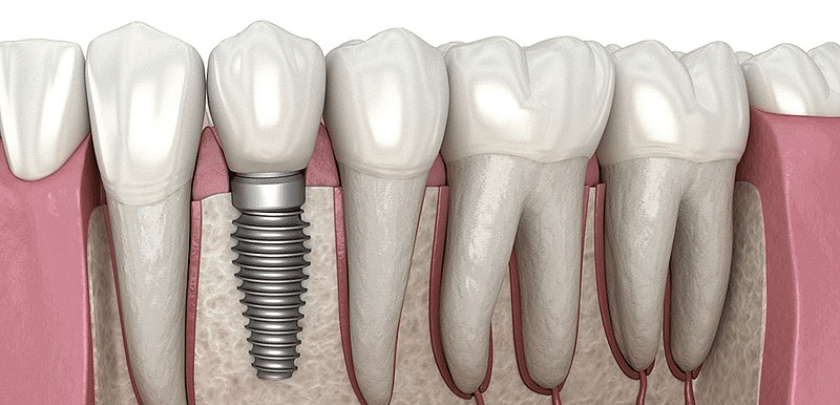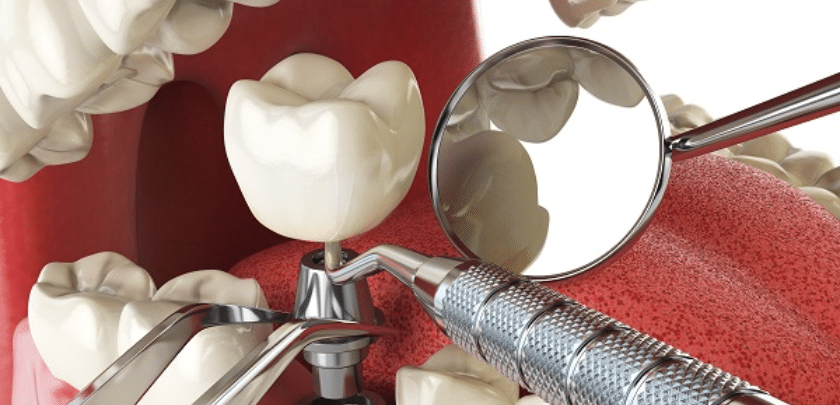Pearl Dental Blog

Can Dental Implant Infection Be Treated With Antibiotics?
Dental implants have revolutionized the field of dentistry, providing a long-lasting and natural-looking solution to missing teeth. However, like any surgical procedure, dental implant placement carries the risk of infection. Infection can occur at any stage of the implant process, from initial placement to the final restoration. While antibiotics are commonly used to treat infections in other parts of the body, their effectiveness in treating dental implant infections is still a topic of debate among dental professionals. In this article, we will explore the causes of dental implant infection, examine the link between antibiotics and dental implants, and discuss both treatment and prevention options for this potentially serious condition.
What Are Dental Implants?
- Dental implants are a popular and effective solution for replacing missing teeth. They are essentially artificial tooth roots that are surgically placed into the jawbone to support a replacement tooth or bridge. Dental implants are made of biocompatible materials like titanium, which allows them to fuse with the bone and become a permanent part of your mouth.
- Unlike dentures or bridges, dental implants look and feel like natural teeth. They also provide many benefits such as improved speech, easier eating, and better oral health. However, getting dental implants is a surgical procedure that comes with some risks, including infection. It’s important to understand what dental implants are and how they work before considering this treatment option.
Source – All-On-4 Dental Implants Fort Lauderdale
What Causes Dental Implant Infection?
- Dental implant infection is a serious concern for individuals who have undergone dental implant surgery. The infection can occur due to various reasons, including poor oral hygiene, smoking, and pre-existing medical conditions such as diabetes. In some cases, the infection may also be caused by the presence of bacteria during the implant surgery.
- During the dental implant procedure, an artificial tooth root is placed in the jawbone to support a replacement tooth or bridge. If proper care is not taken during and after the surgery, bacteria can enter the wound and cause an infection. Symptoms of dental implant infection include pain, swelling, redness around the implant site, and fever. It is essential to seek immediate medical attention if any of these symptoms are experienced.
- In addition to poor oral hygiene and pre-existing medical conditions, other factors that increase the risk of dental implant infections include smoking and a weakened immune system. Individuals who smoke have a higher risk of developing infections due to reduced blood flow to the gums and mouth tissues. Similarly, people with weakened immune systems are more susceptible to infections as their body’s ability to fight off harmful bacteria is compromised.
The Link Between Dental Implants and Antibiotics
- Dental implants are a popular and effective way to replace missing teeth. However, like any surgical procedure, there is always a risk of infection. In some cases, antibiotics may be necessary to treat the infection.
- Antibiotics work by killing or stopping the growth of bacteria that cause infections. When it comes to dental implant infections, antibiotics can be used to treat both early and late-stage infections. Early-stage infections are typically treated with oral antibiotics, while more severe infections may require intravenous (IV) antibiotics.
- It’s important to note that not all dental implant infections require antibiotics. In some cases, simply removing the implant may be enough to clear up the infection. Additionally, overuse of antibiotics can lead to antibiotic resistance, which can make it harder to treat future infections.
- If you suspect you have a dental implant infection, it’s important to seek treatment from a qualified dental professional who can determine the best course of action for your specific situation.
Treating Dental Implant Infection with Antibiotics
- When it comes to treating dental implant infection, antibiotics can be a useful tool in the dentist’s arsenal. However, it’s important to note that antibiotics alone may not always be enough to fully treat the infection.
- In some cases, the infected implant may need to be removed and replaced with a new one. This is because the bacteria causing the infection can create a biofilm around the implant that is difficult for antibiotics to penetrate. In these cases, removing the implant allows for better access to the infected area and increases the chances of successful treatment.
- That being said, antibiotics can still play an important role in treating dental implant infections. They can help reduce inflammation and fight off bacterial growth while other treatments are being administered. It’s important to work closely with your dentist or oral surgeon to determine the best course of action for your specific case of dental implant infection.
Preventing Dental Implant Infection
- One of the best ways to deal with dental implant infection is by preventing it from happening in the first place. The good news is that there are several steps you can take to reduce your risk of developing an infection after getting dental implants.
- Firstly, make sure you choose a qualified and experienced dentist who has a track record of successful implant procedures. This will ensure that your implants are placed correctly and reduce the likelihood of complications down the line.
- Secondly, follow all post-operative instructions provided by your dentist carefully. This may include taking antibiotics as prescribed, avoiding certain foods or activities, and maintaining good oral hygiene practices.
- Lastly, regular check-ups with your dentist are crucial for detecting any potential issues early on before they develop into more serious infections. By following these preventative measures, you can significantly reduce your risk of developing dental implant infections and enjoy a healthy smile for years to come.
In conclusion, while antibiotics can be effective in treating dental implant infections, they should not be relied upon as the sole solution. It is important to address the root cause of the infection and take preventative measures to avoid future complications. Regular dental check-ups and proper oral hygiene practices are crucial in maintaining healthy dental implants. If you suspect an infection or experience any discomfort around your dental implant, it is important to seek immediate professional attention. With proper care and attention, dental implants can provide a long-lasting solution for missing teeth without the risk of infection.





